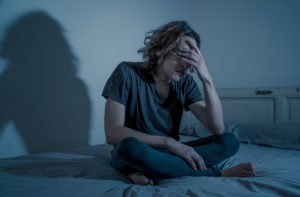CCHR has filed thousands of complaints with state & federal agencies over alleged fraud and abuse in Universal Health Services behavioral facilities: Settlement is a good start but inadequate to protect patients
By Jan Eastgate
President CCHR International
The Mental Health Industry Watchdog
July 20, 2020
The United States Attorney William M. McSwain announced on July 10, 2020 that Universal Health Services, Inc. and UHS of Delaware, Inc. (together, UHS) agreed to pay $117 million to resolve alleged violations of the False Claims Act—making false claims related to medically unnecessary inpatient behavioral health services and illegal kickbacks.[1] The Department also alleged UHS’ facilities billed for services not rendered, billed for improper and excessive lengths of stay, failed to provide adequate staffing, training and/or supervision of staff and improperly used physical and chemical restraints and seclusion.[2]
In a separate civil settlement, UHS’s Turning Point behavioral facility will pay the United States and the State of Georgia another $5 million to resolve allegations that it provided free or discounted transportation services to induce Medicare and Medicaid beneficiaries to seek treatment at Turning Point’s inpatient detoxification and rehabilitation program or intensive outpatient program.[3]
These are allegations the media over the years has reported and Citizens Commission on Human Rights (CCHR) has included in thousands of complaints filed with state and federal regulators and legislators since 2010 and, more substantially since 2015.[4]
Further, on July 13, 2020, Massachusetts Attorney General Maura Healey announced that it will receive $5 million of the federal settlement, but is also to be paid another $10 million in a separate matter over allegations that UHS improperly billed the state’s Medicaid Program (MassHealth)—for a combined total of $132 million. The AG’s Office, along with whistleblowers in this case, specifically alleged that the defendants caused the submission of claims for services provided by unlicensed and non-independently licensed staff who were not properly supervised; for drugs prescribed by psychiatric nurses who were also not properly supervised; for services performed by unlicensed, unsupervised, and unqualified psychologists; and for employing clinicians with inadequate educational credentials.[5]
The whistleblowers in this case, Julio Escobar and Carmen Correa, originally filed a qui tam suit in 2011 in the U.S. District Court of Massachusetts following the death of their daughter, Yarushka Rivera, a teenage Medicaid recipient who received treatment at a UHS facility in Massachusetts. From 2007 to 2009, Yarushka was treated by five unlicensed, unsupervised therapists and psychiatrists—in flagrant violation of Massachusetts health regulations. She suffered two seizures under the care of UHS employees, the second of which was fatal. A state investigation found that UHS’s facility employed 23 unlicensed therapists, none of whom were supervised. The parents alleged fraud.[6]
Arguably, the use of unlicensed therapists spells more profits for any mental healthcare company. Escobar remains the most recent, influential decision from the Supreme Court on False Claims Act cases, according to the MA AG. As part of the resolution in the Escobar case, UHS’s Arbour Counseling Services, where Yarushka was treated, will institute a multiyear compliance program, overseen by an independent compliance monitor, at all of its Massachusetts outpatient clinics.[7] Despite the fraud, Arbour and UHS get to continue practicing and to reap more profit.
The overall Federal DOJ settlement is $5 million less than what was originally reported in 2019, then $127 million.[8]
 Even in 2019 CCHR issued a statement that the settlement was insufficient to send an adequate warning to other for-profit behavioral facilities accused of patient abuse and healthcare fraud.[9] UHS has nearly 200 psychiatric facilities in the U.S. or 328 behavioral health facilities when including its UK psychiatric hospitals, some of which have been subject to police investigations and government scrutiny.[10]
Even in 2019 CCHR issued a statement that the settlement was insufficient to send an adequate warning to other for-profit behavioral facilities accused of patient abuse and healthcare fraud.[9] UHS has nearly 200 psychiatric facilities in the U.S. or 328 behavioral health facilities when including its UK psychiatric hospitals, some of which have been subject to police investigations and government scrutiny.[10]
UHS’s net revenue in 2019, including its medical and acute (non-psychiatric) care sector, was nearly $11.4 billion and so $132 million is a proverbial drop in the ocean for UHS to pay out.[11]
According to the press release from the DOJ, “The claims resolved by these settlements are allegations only, and there has been no determination of liability.”[12] (Emphasis added) However, in their own announcement filed with the Securities and Exchange Commission, UHS officials stated: “The Company denies the allegations raised in this matter and the settlement does not constitute a finding of improper conduct or failure to provide appropriate care and treatment in accordance with governing rules and regulations or an admission of facts or liability by the Company or any of its subsidiary behavioral health facilities.”[13]
In other words, it’s been given license to continue without liability and with a mere 1% of its net income paid in the settlement—a slap on the wrist.
Had there been a conviction, it likely may have resulted in an exclusion from Medicare and Medicaid programs for both UHS’s behavioral and non-psychiatric acute care divisions and, therefore, a crippling loss of government reimbursement for the company—possibly leading to its closure.[14]
UHS has entered into a Corporate Integrity Agreement for five years and includes maintaining an “independent monitor” of its behavioral practices.[15]
In its complaints to legislators about the for-profit psychiatric industry, CCHR has faulted the Centers for Medicare and Medicaid Services’ (CMS) “Correction Plans” and/or Corporate Integrity Agreements (CIAs), which enable facilities to continue operating—only to repeat the offenses they’re supposed to have been corrected on. Patients can be continually kept at risk.
In August 2015, CMS said it would cut Medicare and Medicaid funding to UHS’s Timberlawn psychiatric hospital in Dallas, Texas. The hospital had flunked multiple safety inspections, including the monitoring of suicidal patients, and had failed to make promised improvements. CMS inspectors found Timberlawn workers had falsified records to avoid scrutiny in a patient-harm case. Timberlawn had already come under investigation in April 2013 for allegations of Medicare fraud and improper treatment of Medicaid patients.[16] It took three years, before the psychiatric facility was closed, but not before a 13-year-old girl was raped there. Even then, UHS said it was “voluntarily closing its doors.”[17]
Is it a case that alleged defrauded funds reimbursed to the government takes precedence over patient protections? It seems so, despite strong statements from U.S. Attorney McSwain who said: “Quality mental health treatment is critical for the patients who place their trust in the hands of service providers” and “inappropriate billing and inadequate care…have no place in our health care system.”[18]
None of the paltry $117 million in the federal payout seems to be allocated to abused patients, although courageous whistleblowers will rightfully be compensated for speaking out. As part of the resolution with UHS, the whistleblowers will receive $15.8 million from the federal share of the settlement.[19] Out of $117 million to be paid, the federal government will receive $88,124,761.27 while a total of $28,875,238.73 will be returned to individual states, which jointly fund state Medicaid programs.[20]
Allegations now “resolved” without liability included:
 Between January 2006 and December 2018, UHS’s hospitals and facilities knowingly submitted false claims for payment to the Medicare, Medicaid, TRICARE, Department of Veterans Affairs, and Federal Employee Health Benefit programs for inpatient behavioral health services that were not reasonable or medically necessary and/or failed to provide adequate and appropriate services for adults and children admitted to UHS facilities across the country.[21]
Between January 2006 and December 2018, UHS’s hospitals and facilities knowingly submitted false claims for payment to the Medicare, Medicaid, TRICARE, Department of Veterans Affairs, and Federal Employee Health Benefit programs for inpatient behavioral health services that were not reasonable or medically necessary and/or failed to provide adequate and appropriate services for adults and children admitted to UHS facilities across the country.[21]
- UHS facilities admitted patients to federal healthcare beneficiaries who were not eligible for inpatient or residential treatment because their conditions did not require that level of care.
- They failed to properly discharge patients when they no longer required inpatient care.
- They billed for services not rendered, billed for improper and excessive lengths of stay, failed to provide adequate staffing, training, and/or supervision of staff, and improperly used physical and chemical restraints and seclusion.[22]
The government’s investigation included 19 lawsuits filed under the whistleblower provision of the False Claims Act, which permits private citizens to file suit on behalf of the United States for false claims and share in a portion of the government’s recovery. The global settlement with UHS involved 18 cases that are currently pending in the Eastern District of Pennsylvania, Western District of Michigan, the Eastern District of Michigan, and Northern District of Georgia.[23]
The settlement with UHS was the result of a collaborative effort among numerous federal and state agencies, including The Commercial Litigation Branch of the Justice Department’s Civil Division and the U.S. Attorney’s Office for the Eastern District of Pennsylvania handled the cases, with substantial assistance from other states: Florida, Georgia, Illinois, Michigan, North Carolina, Oklahoma, Oregon, Texas, Utah, Virginia, and Wyoming, as well as the National Association of Medicaid Fraud Control Units (NAMFCU), the Office of Inspector General for the Department of Health and Human Services; the Department of Defense Criminal Investigative Service; the Department of Veterans Affairs, Office of Inspector General; and the Federal Bureau of Investigation. [24]
In its 2019 annual report, UHS includes self-praise about its behavioral services that belies the reports of sexual assault, restraint and other abuses that have plagued its behavioral sector in the U.S. for years and more recently in the UK, where its owns a chain of psychiatric facilities under the helm of its acquired company, Cygnet Health Care.[25]
In the annual report, UHS said of its UK interests, “we are proud to offer the safest therapeutic environments for behavioral health across the country….”[26] That safety is questionable.
- Omitted in the report to investors was that in 2019, UK police arrested 10 workers from Cygnet’s Whorlton Hall psychiatric hospital following allegations of ‘physical and psychological’ abuse of patients at the facility, which has since closed.
- This was triggered by a two-month undercover investigation by the BBC’s Panorama, which aired footage showing staff threatening and taunting patients and apparently boasting about deliberately hurting them.[27]
- On December 28, 2019, The Daily Mail reported Cygnet had been accused of “disgraceful” behavior in handing huge pay rises to top executives despite safety failings in its hospitals, including the killing of one patient and the preventable suicide of another. “The disclosure of big pay rises for Cygnet’s senior management despite the firm’s track record on safety and staffing sparked fury recently from politicians, patients and their families,” The Mail After a year of scandals and unsafe care in their services, it is disgraceful that Cygnet bosses have been rewarded with a big pay rise,” said Barbara Keeley, UK’s Labor’s Shadow Care Minister.[28]
 The Daily Mail reported that “Serious problems have been found by the UK government Care Quality Commission (CQC) at other Cygnet hospitals.” Details in the article included:
The Daily Mail reported that “Serious problems have been found by the UK government Care Quality Commission (CQC) at other Cygnet hospitals.” Details in the article included:
- Nine of the company’s hospitals in the UK were failed this year by the CQC, which monitors, inspects and regulates health and social care services.
- Cygnet was condemned for ‘unbelievable’ failings by the parents of Claire Greaves, a 25-year-old with anorexia and mental health struggles, who took her own life at its purpose-built Coventry hospital. An inquest found long-term use of segregation had fueled her mental decline – then insufficient staffing, reduced observations and other care failures contributed to her death in 2018.
- In December, 2019, CQC “placed the unit in special measures and shut down one dirty, ‘unhygienic’ ward after inspectors found unacceptable levels of self-harm, staff shortages and routine use of restraint….Another inquest in 2019 into the strangling of Linda Goswell by a fellow patient at a Cygnet hospital in Bradford highlighted staff failures. Both women were supposed to be checked every 15 minutes yet the killer slipped unnoticed into Goswell’s room for 42 minutes.” Further, “Had the correct observations and procedures taken place, there was a possibility that death may have been prevented,” concluded the jury. A nurse was dismissed after the killing for gross misconduct.
- Inspectors condemned a Cygnet Hospital Ealing in West London, for “not delivering safe care” and another in Bradford was found to have ‘unsafe’ premises and facilities.
- Claire Sherman, a former teacher whose 12-year-old autistic daughter, Jess, was sectioned in Cygnet’s hospital in Woking, Surrey, for eight months in 2017, claimed that Jess was abused by older patients, restrained face-down by teams of adult carers, dragged along the floor, forcibly injected with drugs and held in seclusion.[29]
- A 34-year-old female patient alleged she was left shaking and terrified as two male “nurses” dragged her down the corridor by her arms and slammed her against a bedroom door on March 28, 2019. She complained to Cygnet bosses about the way she was treated. They looked at the CCTV, upheld her complaint that she was “inappropriately restrained” and cut ties with the two agency staff responsible.[30]
Already—and, apparently, in spite of the COVID-19 pandemic— the behavioral market is setting its sights on increased profits, with the global behavioral health market expecting to reach $240 billion by 2026. Companies like UHS, Acadia Healthcare, Strategic Behavioral Health and more are among those most likely to benefit.[31]
To truly protect patients from psychiatric abuse and fraud, much tougher policies and actions are needed to curb it. There must be a recognition that if the fraudulent practices perpetrated in the psychiatric hospital industry were found committed in other businesses or by lay people, our prisons would be burgeoning, far greater, than even now. Therefore, there must also be equality in the law. Then, the costs saved in terms of saved lives and a better health care system that is held to high standards, accountability and criminal liability, would be immeasurable.
References:
[1] “Universal Health Services, Inc. to Pay $117 Million to Settle False Claims Act Allegations,” Dept. of Justice Eastern District of Pennsylvania, 10 July 2020, https://www.justice.gov/usao-edpa/pr/universal-health-services-inc-pay-117-million-settle-false-claims-act-allegations; “Universal Health Services officially finalizes $122M settlement with DOJ,” Fierce Healthcare, 13 Jul, 2020, https://www.fiercehealthcare.com/hospitals/universal-health-services-officially-finalizes-122m-settlement-doj
[2] “Universal Health Services officially finalizes $122M settlement with DOJ,” Fierce Healthcare, 13 July 2020, https://www.fiercehealthcare.com/hospitals/universal-health-services-officially-finalizes-122m-settlement-doj
[3] http://www.hirstlawgroup.com/19.html
[4] https://www.cchrint.org/2015/11/18/allegations-against-psych-hospital-chain-continue/
[5] “Universal Health Services to Pay Massachusetts More than $15 Million to Resolve Whistleblower False Claims Cases,” Mass.gov, 13 July 2020, https://www.mass.gov/news/universal-health-services-to-pay-massachusetts-more-than-15-million-to-resolve-whistleblower
[6] https://www.aarp.org/aarp-foundation/our-work/legal-advocacy/info-2016/Universal-Health-v-U-S-Escobar-Correa.html
[7] Op. cit., Mass.gov, 13 July 2020 r
[8] “UHS agrees to $127M DOJ to settle behavioral health investigation,” MedCity News, 28 July 2019, https://medcitynews.com/2019/07/uhs-agrees-to-127m-doj-to-settle-behavioral-health-investigation/
[9] https://www.cchrint.org/2019/08/13/multi-million-dollar-fines-insufficient-to-curb-fraud-patient-sexual-other-abuses/
[10] http://ir.uhsinc.com/
[11] https://www.macrotrends.net/stocks/charts/UHS/universal-health-services/revenue
[12] Op. cit., Dept. of Justice Eastern District of Pennsylvania, 10 July 2020
[13] Op. cit., Fierce Healthcare, 13 July 2020
[14] The Exclusion Statute, 42 U.S.C. Section 1320a-7, Medicare Fraud & Abuse: Prevent, Detect, Report, page 9, https://www.cms.gov/Outreach-and-Education/Medicare-Learning-Network-MLN/MLNProducts/Downloads/Fraud-Abuse-MLN4649244.pdf
[15] Op. cit., Dept. of Justice Eastern District of Pennsylvania, 10 July 2020
[16] Reese Dunklin, “Judge rules regulators can stop funding Timberlawn psychiatric hospital,” The Dallas Morning News, August 13, 2015, https://www.dallasnews.com/news/2015/08/14/judge-rules-regulators-can-stop-funding-timberlawn-psychiatric-hospital/; https://olis.leg.state.or.us/liz/2017R1/Downloads/CommitteeMeetingDocument/117795;
[17] Sue Ambrose, Sarah Mervosh, Miles Moffeit ,”Timberlawn psychiatric hospital to close Feb. 16 after safety violations,” 18 Jan. 2018, Dallas Morning News, https://www.dallasnews.com/news/investigations/2018/01/18/dmn-investigates-troubled-timberlawn-psychiatric-hospital-closing-before-state-can-shut; “Dallas police investigating sexual assault of 13-year-old girl at Timberlawn hospital,” Dallas Morning News, 13 Oct. 2017, https://www.dallasnews.com/news/crime/2017/10/12/13-year-old-girl-sexually-assaulted-timberlawn-psychiatric-hospital-dallas.
[18] “Universal Health Services, Inc. And Related Entities To Pay $122 Million To Settle False Claims Act Allegations Relating To Medically Unnecessary Inpatient Behavioral Health Services And Illegal Kickbacks,” U.S. Department of Justice, 10 July 2020, https://www.justice.gov/opa/pr/universal-health-services-inc-and-related-entities-pay-122-million-settle-false-claims-act
[19] Ibid.
[20] Ibid.
[21] Ibid.
[22] Ibid.
[23] Op. cit., Dept. of Justice Eastern District of Pennsylvania, 10 July 2020
[24] Ibid.
[25] http://ir.uhsinc.com/index.php/static-files/01ddf114-1ea1-4bb8-8fb8-8791369e2f0f
[26] Ibid.
[27] https://www.independent.co.uk/news/health/whorlton-hall-investigation-arrests-abuse-learning-disability-latest-a8928811.html
[28] “Fat cat boss of private mental health firm receives £445,000 pay rise despite hospitals failing autistic patients,” The Daily Mail, 28 Dec. 2019, https://www.dailymail.co.uk/news/article-7832979/Boss-private-mental-health-firm-receives-445-000-pay-rise-despite-hospitals-failing.html
[29] Ibid.
[30] “Woman ‘thrown against door’ at same hospital where Derby man ‘badly beaten up,’” Derby Telegraph/Derbyshire Live, 23 Sept. 2019, https://www.derbytelegraph.co.uk/news/local-news/cygnet-hospital-kewstoke-3332605
[31] https://www.globenewswire.com/news-release/2019/07/26/1892319/0/en/Behavioural-Health-Market-Size-to-Hit-US-240-Bn-by-2026.html



SHARE YOUR STORY/COMMENT